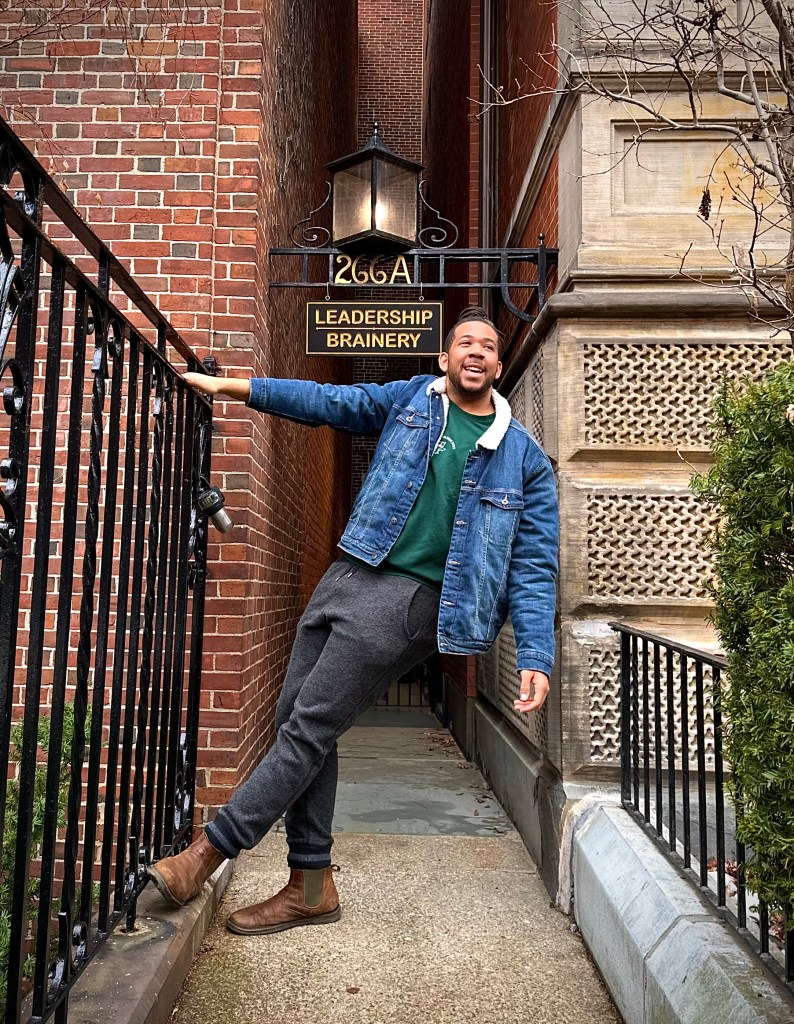How identity networking and social media can get Gen Z ahead in their careers

PinkNews speaks to JAKE Small to find out how Gen Z can progress in their careers. (Supplied/Getty Images)
PinkNews speaks to JAKE Small to find out how Gen Z can progress in their careers. (Supplied/Getty Images)
As Gen Z continues to quickly make its presence felt in the workplace, PinkNews speaks to higher learning and workplace equity consultant JAKE Small to find out how the youngest colleagues in the office can get ahead in their careers.
Born between the mid-1990s and early 2010s, Gen Z is recognised for its diversity, both culturally and socially, making it the most heterogeneous group of colleagues to step into the workforce.
Data from Pew Research found that 48 per cent of Gen Z people in the US are considered an ethnic minority, Gen Z folk in the UK are twice as likely to identify as queer. It’s estimated that Gen Z will make up 27 per cent of the working population by 2025, yet when it comes to leadership roles, there is still a glaring lack of diversity.
Gen Z is entering the workforce with a greater skillset compared to their grandparents. However, they also confront unique challenges not experienced by their older colleagues. With events like the global pandemic, a war in Europe, economic turmoil and ongoing discrimination against LGBTQ+ and marginalised communities, these young individuals have already developed a remarkable sense of resilience.
The value of identity-based networks
For young and queer professionals of colour looking to progress their careers, the task is daunting when it’s tough to see one’s identity reflected in the leadership roles that they aspire to.
JAKE Small, a higher education leader, workplace equity consultant, and the director of strategic alliances at Leadership Brainery, believes that creating a powerful and inspiring network of individuals who share similar identities and life experiences is a crucial step towards professional advancement.
“One piece of advice I share with young folks, especially young queer folks and Black folks, is that you can also network based on our identities,” he tells PinkNews.
“It can be a weird thing for folks to feel or experience, but there is nothing wrong with saying “I want to meet some Black mentors who share my racial identity”.”
Small says that he has mentors in fields unrelated to his own but their shared identity inspires him just as much as his industry-based network.
“They are queer, they are Black, they are from where I’m from”, he says. “And they offer me insights on how to navigate a professional career with those identities.
“That sort of identity-based mentorship can be so rich and so valuable.”
Small says that when it comes to networking, using LinkedIn is a great space for young and queer folks to build out community and skills-based networks. He knows this from his own experience in building connections with other queer Black creators.
“There are folks who have inspired me and inspired the ways that I show up as a creator on LinkedIn and work that I do.”

A survey from Lever found that 42 per cent of the Gen Z workforce would prefer to work for a company with a sense of purpose as opposed to money (although pay packets are important to them too.)
Further research from Deloitte found that wellbeing is important to the youngest generation of colleagues, with 32 per cent saying that they choose a new job based on a solid work-life balance.
Within his work in higher education, Small proudly describes himself as an elder Gen Z at a senior level within their career. While Small admits that they are often the youngest person in the room, they are also “the oldest Gen Z around.”
“I get to shepherd this new generation into the workforce,” they continued.
Small’s experience and his age put him in the perfect place to offer advice to the Zoomers entering the workforce.
“We’re interested not just in where we worked, but also who we’re working with,” he says. “We’re interested in bringing our identities into spaces that we commit sometimes up to 50 hours a week to.”
Small stresses that new grads should be their authentic selves, but acknowledges that it can “create challenges towards career mobility, especially if you’re applying to organisations that are not as progressive and inclusive as you’re looking for.”
He adds: “But it also allows you to find your ‘where’ that aligns with your ‘who,’ which I think is so important.”
Gen Z should use social media to highlight career abilities
As Gen Z is the first generation to be born into the internet age, Small believes that the new generation of employees has the opportunity to show their knowledge and creativity through social media.
“If you’re not working for a company that asks you to produce content on LinkedIn or other social media platforms, you should still do so”, they say.
“If you have amazing, incredible ideas, go out there and film them and create them, start businesses, start ideas and get things going.”
Small’s final piece of advice? Don’t be afraid of failure.
“The biggest failure is not doing at all.”

